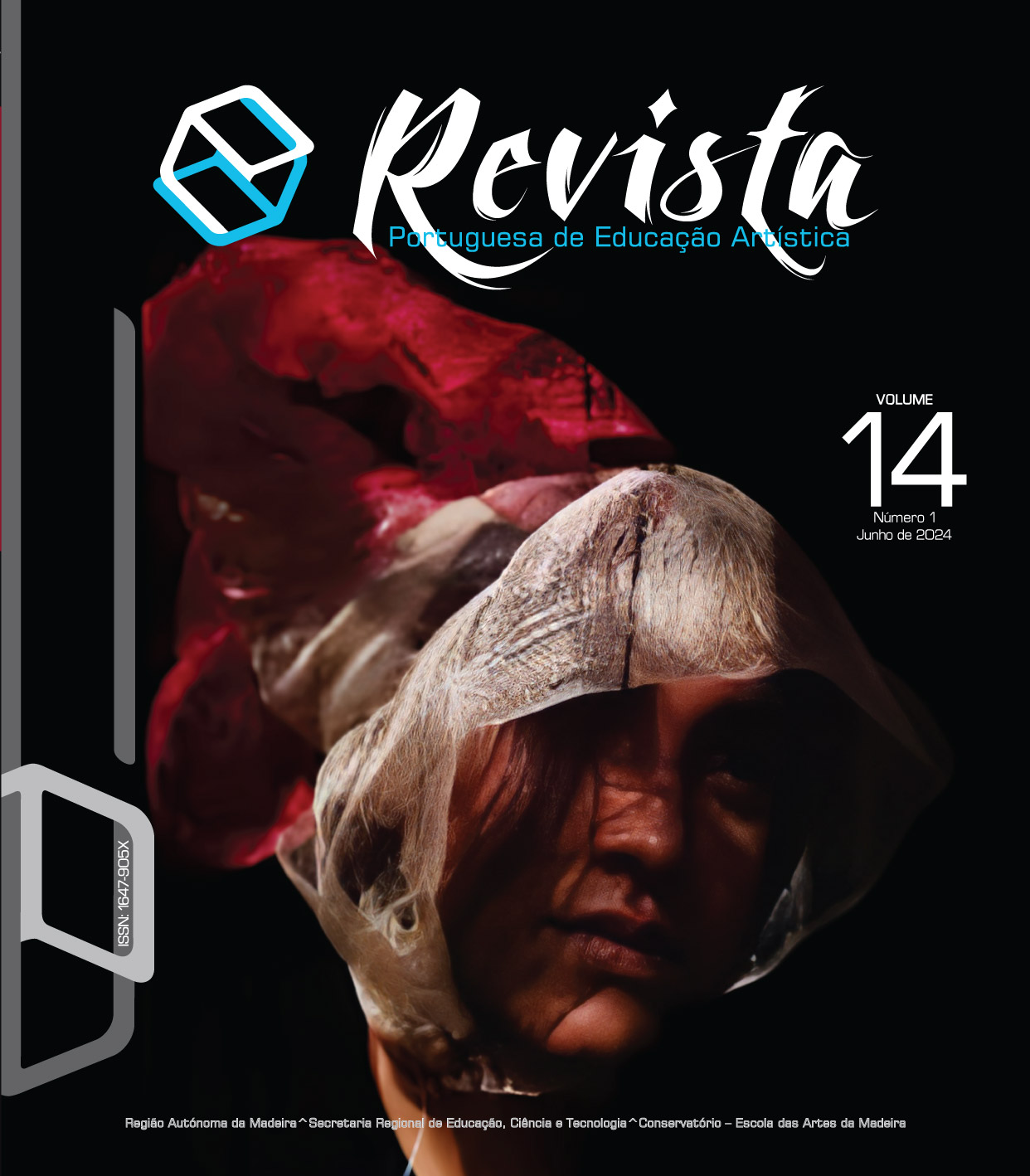Current Issue
Vol. 14 No. 1 (2024): Portuguese Journal of Arts Education

The current issue of the Revista Portuguesa de Educação Artística (RPEA) brings together a collection of articles that reflect the diversity of contemporary approaches and research in the field of arts education, encompassing topics ranging from traditional music to digital art, as well as intercultural experiences and innovative pedagogical practices.
We begin with the article "Adapting a Music Education Curriculum to a Bilingual Context: A Teaching Experience Report", in which the author, drawing on her experience as a music teacher in a bilingual setting in Brazil, presents the strategies employed to adapt a music curriculum to a dual-language reality. The text discusses key themes such as communication, culture, language, and inclusion, offering relevant reflections for music education in multicultural environments.
The following article, "The Relationship Between Arts Education and Digital Space", presents a reflection on the need to update pedagogical practices in Visual Arts education, taking into account the influence of technology on contemporary artistic production. The analysis focuses on Portuguese curricular guidelines and proposes pathways for the integration of digital tools into arts teaching.
In the article "Technology in the Training of Arts Educators: Current Practices in Music Education in the Digital Era", the results of a study conducted with future arts educators in Portugal are presented. The author explores musical creation using digital resources, respecting the principles of contemporary and electroacoustic music, and proposes methodological approaches aligned with current educational contexts.
Also within the domain of music, the article "Portuguese Traditional Music for the Development of Aural Perception in Music Training Students" discusses the benefits of using traditional repertoire as a didactic tool in developing aural perception. The study, conducted at the Conservatory of Music of Seia, highlights the motivational role of traditional music and the outcomes achieved with students.
Shifting focus to the intersection of artistic practices, the essay "The Mask and the Other: A Transdisciplinary Project Between Sculpture, Multimedia, and Art Theory" addresses a pedagogical project developed at the School of Education of Lisbon. The initiative challenged students to explore the theme of the mask from a transdisciplinary perspective, revealing the educational potential of practices that integrate sculpture, multimedia, and theoretical reflection.
We conclude with the article "Traditional Dances in Arts Education: A Contemporary Perspective", which offers an analysis of the role of traditional dances in educational contexts as a vehicle for valuing heritage, fostering expressive development, and building intercultural understanding. Through documentary research and direct intervention, the study highlights the multiple pedagogical and artistic dimensions that these embodied practices can assume.
This issue of RPEA reaffirms its commitment to disseminating research and practices that value the arts as a dynamic, diverse educational field in ongoing dialogue with contemporary challenges.
Published:
2025-07-09



